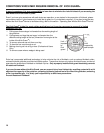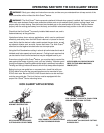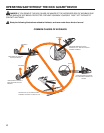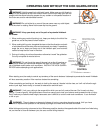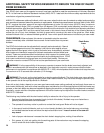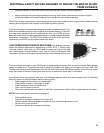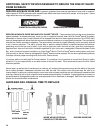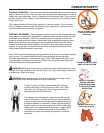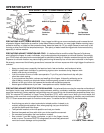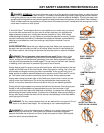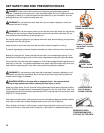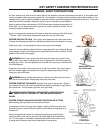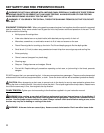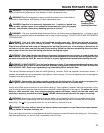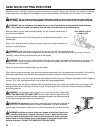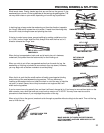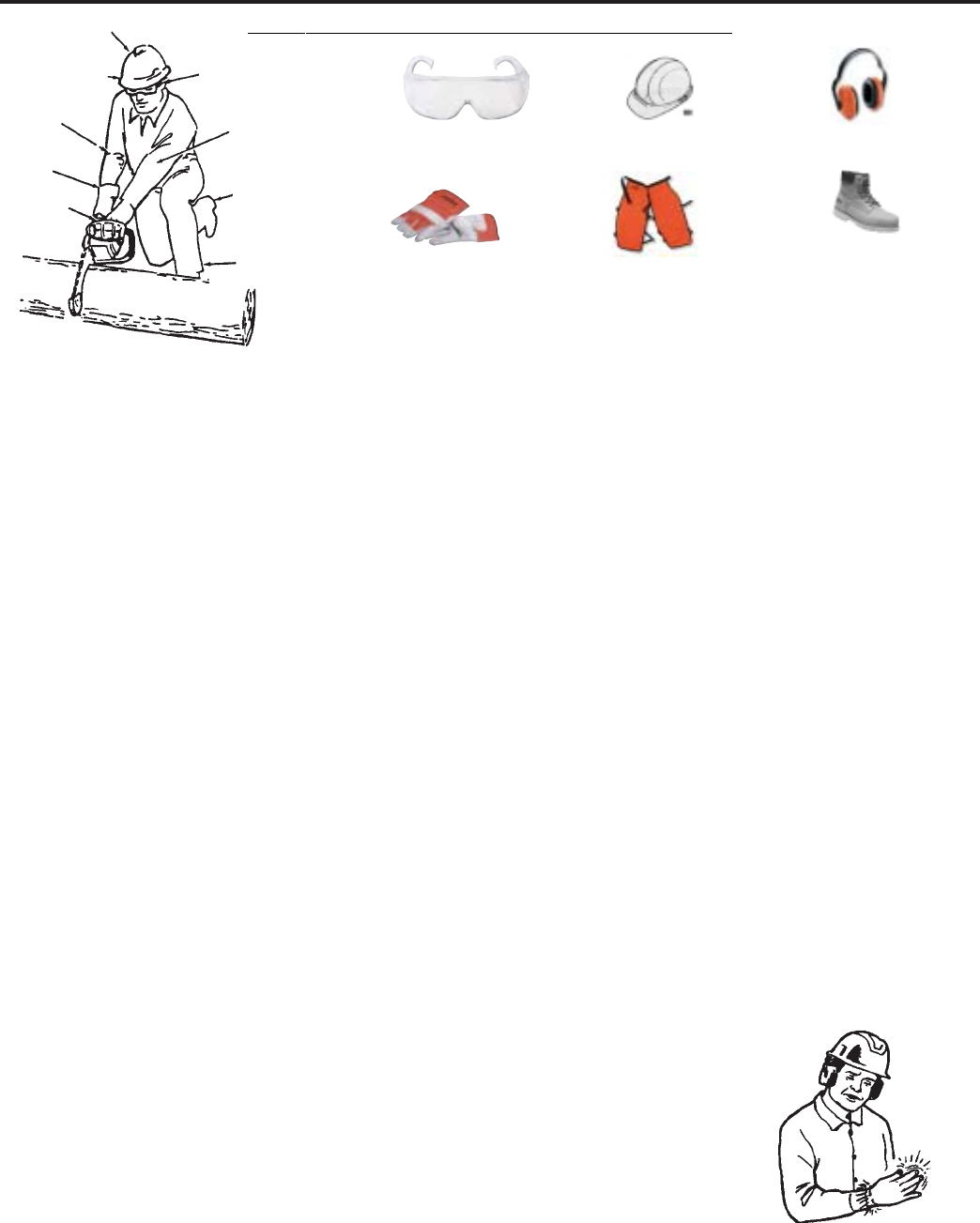
18
PRECAUTIONS IN HOT, HUMID WEATHER - Heavy logger’s clothing can cause overheating and increase the risk
of operator fatigue. Heat stroke is possible. Under these adverse conditions, you must judge whether wearing heavy
protective clothing, or lighter but less protective items, bears the least risk. Or you might choose to work early in the
morning or delay work until the temperature drops. Take plenty of water breaks during periods of strenuous activity,
especially in warmer weather.
PRECAUTIONS AGAINST VIBRATION AND COLD - It is believed that a condition called Raynaud’s Syndrome,
which affects the fingers of certain individuals, may be brought about by exposure to cold and vibration. Accordingly,
your ECHO chain saw has shock mounts designed to reduce the intensity of vibration received through the handles.
Exposure to cold and vibration may cause tingling and burning followed by loss of color and numbness in the fingers.
We strongly recommend the following precautions, because the minimum exposure which might trigger the ailment is
unknown.
• Keep your body warm, especially the head and neck, feet and ankles, and hands and wrists.
• Maintain good blood circulation by performing vigorous arm exercises during frequent work
breaks, and also by not smoking.
• Limit the number of hours of chain saw operation. Try to fill a part of each work day with jobs
other than chain sawing.
• If you experience discomfort, redness and swelling of the fingers, followed by whitening and or
loss of feeling, consult your physician before further exposing yourself to cold and vibration.
• Maintain a firm grip, but do not squeeze the handles with excessive pressure.
• Assure good maintenance of your saw - loose parts can add to vibration levels.
PRECAUTIONS AGAINST REPETITIVE STRESS INJURIES - It is believed that overusing the muscles and tendons of
the fingers, hands, arms, and shoulders may cause soreness, swelling, numbness, weakness, and extreme pain to the
areas just mentioned. Certain repetitive hand activities may put you at a high risk for developing a repetitive stress injury
(RSI). An extreme RSI condition is Carpal Tunnel Syndrome (CTS), which could occur when your wrist swells and
squeezes a vital nerve that runs through the area. Some believe that prolonged exposure to vibration may contribute to
CTS. CTS can cause severe pain for months or even years. To reduce the risk of RSI/CTS, do the following:
VITAL SAFETY GEAR TO WEAR WHEN CUTTING:
Cut Resistant
Steel-Toe Boots
Cut resistant Leg Chaps
Hearing Protection
Hard Hat
Protective
Gloves
ANSI Z-87 Eyewear
Hard hat
Hearing
Protection
Trim,
protective
clothing
Non-slip
gloves
Thumb
under handle
bar
Eye protection
Elbow as
straight as
possible
Protective, non-
slip footwear
No pants cuffs
to snag in
underbrush
IF IT HURTS, TAKE A BREAK
• Avoid using your wrist in a bent, extended or twisted position. Instead, try to
maintain a straight wrist position. Also, when grasping, use your whole hand,
not just the thumb and index finger.
• Take periodic breaks to minimize repetition and rest your hands.
• Reduce the speed and force with which you do the repetitive movement.
• Do exercises to strengthen the hand and arm muscles.
• See a doctor if you feel tingling, numbness, or pain in the fingers, hands,
wrists, or arms. The sooner RSI/CTS is diagnosed, the more likely permanent
nerve and muscle damage can be prevented.
OPERATOR SAFETY



